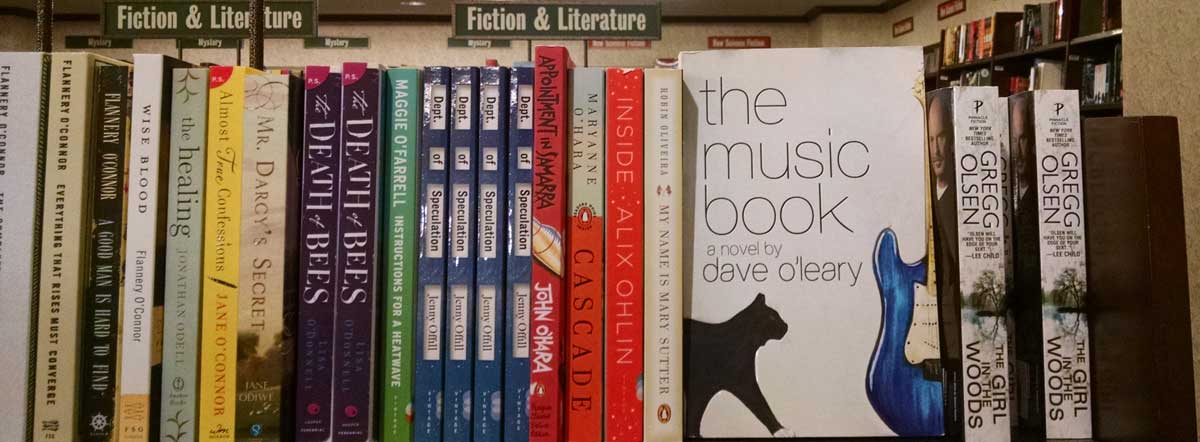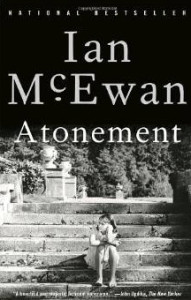It’s something I’ve tried to capture in my books, the idea of what writing means to the writer, the struggle, the joy, the doubt inherent in the process, and so this week’s entry, number seven in my top ten, comes from Ian McEwan’s Atonement, a book which I only recently discovered. It was through the movie, actually. I enjoyed the film, so naturally I wanted to check out the book, and well, as always, the book was far better. It’s such a beautifully written piece of literature that I’m amazed it was only shortlisted for the Man Booker Prize in 2001. It lost to Peter Carey’s The True History of the Kelly Gang, which is now on my list of must reads as I have to read the book that beat Atonement. I have to find what majesty it contains. Or I might be setting myself up for disappointment. I read Atonement first. It already has a place in my heart, and besides, the winner of such awards is not always the better work.
But back to Atonement.
Here’s the passage I want to reference.
“Once she has begun a story, no one could be told. Pretending in words was too tentative, too vulnerable, too embarrassing to let anyone know. Even writing out the she saids, the and thens, made her wince, and she felt foolish, appearing to know about the emotions of an imaginary being. Self-exposure was inevitable the moment she described a character’s weakness; the reader was bound to speculate that she was describing herself. What other authority could she have? Only when a story was finished, all fates resolved and the whole matter sealed off at both ends so it resembled, at least in this one respect, every other finished story in the world, could she feel immune.”
So true, so true. I’ve shown unfinished drafts of my books to people, and it never works because they can’t see the conclusion, the resolution, the happiness or sadness of it all. They can’t see where it ends up so they inevitably get confused about where it’s going or even if it’s going anywhere at all. And there’s also the bit about wondering how much of the writer is in the work. Admittedly, the main characters in both of my books and the published short stories are drawn heavily from me. That’s where I started in writing, in my blog and in the music writing, it was me, my perspective. But my next book will be different. There will be multiple perspectives, both male and female. I’ll be stepping into the third person and thus into “the emotions of an imaginary being.” It does feel a little weird at times, feels like I’m a kid again and pretending, playing with my toys and creating imaginary worlds and events and relationships. When I was a kid, the events of such pretending always revolved around sports or battles or monsters, specifically King Kong or Godzilla. I didn’t know anything else. In my adult life, it’s love, the passion for another human being that drives us to joy, to happiness, madness, despair. What else is there really in life than to try to win and keep the heart of another?
There are plenty of things to do along the way, of course, but in the end, that’s what it all comes down to, that’s where all effort leads, the pursuit of love and dealing with its absence or loss. Atonement is the same. I won’t ruin the ending for you, but I will end with another quote from the book.
“Their love. Neither Briony nor the war had destroyed it. This was what soothed her as she sank deeper under the city. How Cecelia had drawn him to her with her eyes. That tenderness in her voice when she called him back from his memories, from Dunkirk, or from the roads that led to it…Come back.”
And that’s what all of us want. Those two words, another calling to us from afar, beckoning for a moment, for a lifetime: Come back.

